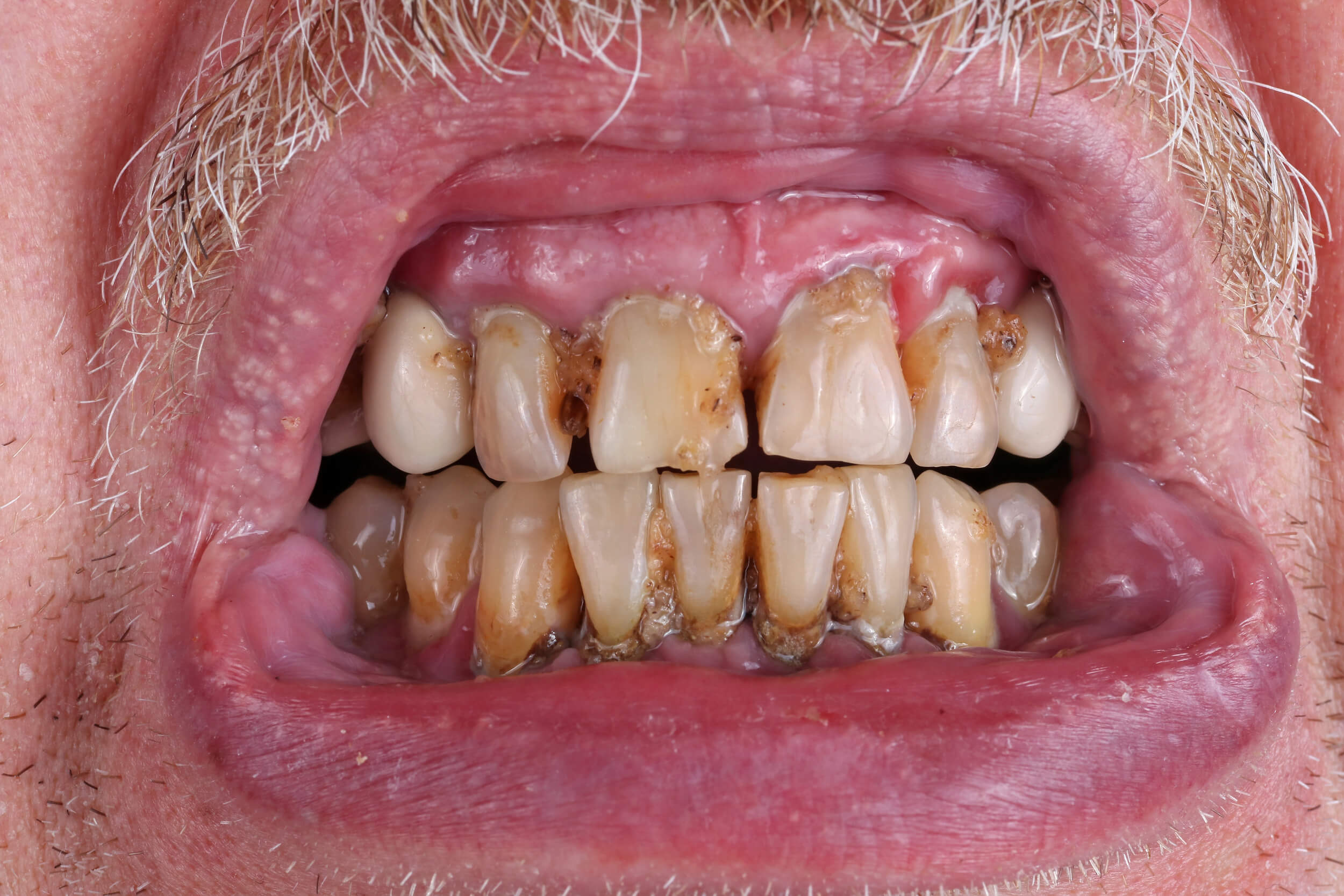A healthy mouth does far more than give you a nice smile. Strong teeth and clean gums let you chew food without pain, speak clearly, and feel comfortable in everyday conversations. When oral care is ignored, even simple things like enjoying a meal or talking with friends can become stressful.
Confidence also has a close tie to oral health. Fresh breath and bright teeth make it easier to meet people, share ideas, or laugh without holding back. These daily wins show why oral care matters—not just for appearance but for the way you live and connect with others. Small habits add up, and good routines protect both your health and quality of life.
What Oral Health Really Means
Oral health isn’t just about teeth looking white. It covers every part of the mouth—your gums, tongue, saliva, and jaws all work together to let you eat, speak, and smile without pain. A healthy mouth means you can go through the day comfortably, without worrying about sensitivity, bleeding, or bad breath.
Strong oral health comes from a mix of daily habits and regular care. Brushing, flossing, and using the right toothpaste set the foundation. Dental checkups spot small issues before they turn big. Diet also plays a role—what you eat fuels not only your body but also your mouth. Good sleep and lifestyle choices keep everything in balance.
This full picture is why oral care matters. When the mouth is pain-free and functions well, life feels easier and more enjoyable. Taking care of your mouth is one of the simplest ways to protect overall health.
Common Oral Health Problems You Should Know
Not paying attention to daily care often leads to issues that affect both comfort and confidence. Here are the most common problems:
- Tooth Decay – Bacteria feed on leftover sugar and release acids that wear down enamel. Without treatment, cavities form, leading to pain and trouble chewing.
- Gum Disease – It often starts as gingivitis (red, swollen gums) and can progress to periodontitis, which damages bone and can loosen teeth.
- Bad Breath – Bacteria overgrowth is the usual cause. Persistent odor is often a sign that another oral issue is present.
- Tooth Sensitivity – Worn enamel or receding gums expose nerves, making hot or cold foods painful.
- Dry Mouth – Some medicines, dehydration, or health conditions lower saliva flow. This raises the risk of cavities and infections.
- Oral Infections – Yeast, viruses, or bacteria can cause sores or thrush. Left untreated, they may spread and impact general health.
- Stains and Discoloration – Coffee, tea, and some foods stain the surface. Certain medications or injuries can leave deeper, harder-to-treat marks.
Each of these concerns shows why oral care matters. Daily habits and checkups help prevent them, saving you from pain, stress, and expensive treatment later.
Why Oral Care Is Crucial for Overall Health
The mouth is closely linked to the rest of the body. Harmful bacteria don’t just stay on teeth and gums—they can travel into the bloodstream. This explains why oral care matters for protecting long-term health.
- Heart health can be affected when bacteria from gum disease reach blood vessels. Inflammation may raise the risk of heart disease.
- Diabetes control becomes harder if gum infections are present, as high blood sugar and gum problems fuel each other.
- Respiratory infections are more likely when bacteria from the mouth are inhaled into the lungs.
- Pregnancy complications may increase if gum disease isn’t treated, including risks for early birth or low birth weight.
Good oral habits act as prevention, not only stopping cavities and gum problems but also lowering risks for bigger health issues. This is another reason why oral care matters—it protects more than just your smile.
The Benefits of a Healthy Mouth
Strong oral health brings everyday benefits you can feel:
- Comfort in daily life – Eating, drinking, and talking without pain or sensitivity.
- Saving money – Preventive habits are cheaper than fillings, extractions, or implants.
- Confidence boost – Fresh breath and a clean smile make it easier to speak up and interact with others.
- Keeping natural teeth longer – Healthy gums and strong enamel reduce the chance of early tooth loss.
These benefits explain why oral care matters. A little effort each day pays off in many ways, from your wallet to your self-esteem. Teeth that last, gums that stay firm, and breath that feels fresh all add to a better quality of life. That’s why oral care matters for people of all ages—it’s not just about now, but about protecting your future health.
Ten Practical Tips for Strong Teeth and Gums
Healthy routines don’t need to be complicated. These ten simple habits can protect your teeth and gums for life:
1. Brush Correctly Twice a Day
Brushing isn’t just about how often you do it, but also how you do it. Use a soft-bristled toothbrush and gentle circles instead of hard scrubbing. Aim for at least two minutes, reaching every surface of every tooth. Replace your toothbrush every three to four months, or sooner if bristles fray. Brushing the right way makes a big difference in preventing cavities and gum irritation.
2. Floss Once Daily
Flossing removes food and plaque stuck between teeth where a toothbrush can’t reach. Doing it once a day lowers your risk of gum disease and tooth decay. If string floss feels tricky, try floss picks or water flossers. The goal is simple—clear out the hidden spaces before bacteria have a chance to grow. Making flossing part of your routine helps keep gums firm and healthy.
3. Use the Right Toothpaste
The toothpaste you choose matters. Fluoride toothpaste is important for strengthening enamel and preventing cavities. If you have sensitive teeth, there are formulas designed to calm nerve endings. For people prone to gum problems, anti-bacterial toothpastes may help. A dentist can guide you on the best option for your needs. Using the right paste daily ensures your brushing is as effective as possible.
4. Limit Sugar and Acidic Foods
Sugar feeds harmful bacteria, which then produce acid that weakens enamel. Acidic drinks like soda and energy drinks can erode tooth surfaces, too. Limiting sweets, sticky candies, and soft drinks keeps your teeth stronger. If you do have them, rinse your mouth with water afterward. Choosing better snacks, like cheese or crunchy veggies, helps you cut back without feeling deprived.
5. Eat Teeth-Friendly Foods
What you eat can protect your teeth as much as brushing. Crunchy fruits and vegetables like apples or carrots naturally clean surfaces while you chew. Dairy foods provide calcium for strong enamel, while lean proteins supply phosphorus, another mineral your teeth need. Nuts, leafy greens, and water-rich foods also support mouth health. Building meals with these foods helps your body and your smile.
6. Drink Plenty of Water
Water is the best drink for your mouth and body. It rinses away food particles, keeps your mouth moist, and helps prevent bad breath. Staying hydrated also boosts saliva flow, which naturally protects enamel by neutralizing acids. Try carrying a water bottle to sip throughout the day. Replacing sugary drinks with water is one of the easiest ways to support long-term oral health.
7. Visit the Dentist Regularly
Routine checkups catch problems before they turn serious. Dentists can spot cavities, gum issues, or even signs of other health problems early on. Professional cleanings also remove tartar that brushing and flossing miss. Most people benefit from a visit every six months, though your dentist may suggest more often if needed. Regular visits save you pain, time, and money down the line.
8. Protect Teeth From Damage
Everyday habits can wear down teeth if you’re not careful. Grinding or clenching, often during sleep, can cause cracks and soreness. A custom night guard can prevent this. If you play sports, wearing a mouthguard protects against injuries. Limiting acidic drinks and avoiding chewing on ice or hard candy also protect enamel. Taking small precautions now keeps your teeth stronger for years to come.
9. Care for Your Tongue
Bacteria collect on the tongue just like they do on teeth. Brushing or scraping your tongue daily helps cut down on odor and lowers infection risks. A tongue scraper is an easy tool, but even using your toothbrush works. Freshening your tongue also supports gum and tooth health since fewer bacteria remain in the mouth. This step takes seconds but makes a big difference.
10. Teach Kids Early Habits
Children learn from what they see. Showing kids how to brush and floss properly builds routines that stick for life. Make it fun with colorful brushes, songs, or reward charts. Limit sugary snacks and encourage water as their main drink. Teaching children early not only protects their baby teeth but also sets them up for strong adult teeth. Good habits formed young last a lifetime.
Lifestyle Choices That Affect Oral Health
Some daily choices harm teeth and gums more than people realize:
- Smoking and tobacco – Raise the risk of gum disease, tooth loss, and stains.
- Alcohol – Often dries out the mouth, leading to decay and infections.
- Stress and poor sleep – Linked to grinding, clenching, and weakened immunity.
Quitting or cutting back on these habits supports healthier gums and fresher breath. Managing conditions like diabetes also matters, since high blood sugar can worsen gum issues. Replacing risky behaviors with healthier ones—like exercise, balanced meals, and proper rest—helps your mouth and body at the same time.
Hydration and the Role of Saliva
Saliva is the mouth’s natural defense system. It washes away food, neutralizes acids, and helps restore minerals to enamel. When saliva levels drop, bacteria multiply faster, raising the chance of decay, gum problems, and bad breath. Dehydration, some medications, or certain health conditions can cause dry mouth. The simplest way to protect saliva flow is drinking enough water. Sipping water throughout the day keeps the mouth moist and defenses strong, making hydration one of the easiest tools for a healthy smile.
The Future of Oral Care
Oral health care is becoming smarter and more preventive. New technology like AI dental scans can detect tiny issues before they cause pain. Smart toothbrushes track how well and how long you brush, giving real-time feedback. Materials for fillings and crowns are also improving, making them stronger and longer-lasting. Dentists are focusing more on prevention than repair, helping people avoid problems in the first place. These changes show that caring for your mouth will only get easier with time, with more ways to stay ahead of dental issues.
Final Thoughts: Healthy Teeth, Healthy Life
Your mouth is part of your whole health story. Caring for it isn’t just about avoiding cavities—it’s about preventing disease, saving money, and enjoying daily comfort. Small choices, like brushing, flossing, eating better, and drinking water, build up over time to protect both teeth and body. Healthy teeth let you eat, laugh, and live without worry. In the end, oral care is total health care. When you look after your mouth, you’re protecting much more than a smile—you’re supporting your overall well-being.















